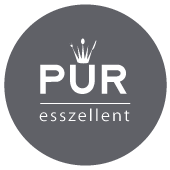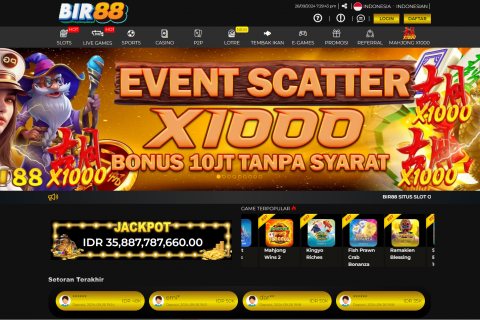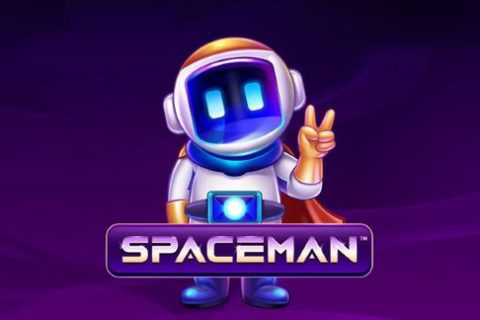PsychoMorph was created as an accessible and handy application that can be used for 2D face perception research and analysis.
PsychoMorph allows you to load and transform your image files with ease. PsychoMorph is written using Java and is available for all major platforms, including Windows, Mac OS X, and Linux.

PsychoMorph Download [32|64bit]
1) User interface is based on a simple GUI approach that allows easy access to most of the functions
2) It has also been designed to avoid freezing and cluttering the user interface
3) It’s simple to install on any platform
4) The software runs on any platform without limitations, making it the most reliable Windows-based software
5) It allows the user to define several arbitrary shapes (i.e., masks) that can be stored in image files
6) It comes with a highly customizable user interface, including a drag-and-drop function to add new shapes
7) You can select one or more shapes from the main frame list or the available shape list and apply the selected one to a new image file
8) You can directly use the toolbox in any position or you can drag and drop the toolbox where you want
9) The user interface is highly customizable, which allows you to make your preferences as default. This includes a context menu, hotkeys, and font settings (size, color, and position)
Perception of Human Faces is an easy and intuitive platform to explore the facial geometry of the human face.
You may choose and prepare a series of images containing a face, faces with various surface landmarks, or faces with discrete facial landmarks.
You can then display the images and get a ready 3D model or save the data in a file or a website.
Meltav is a face recognition program that can be used for the recognition of people. It can also detect the gender of a person. The main purpose is to make an automatic screening of the human population. It can be used for any purpose but is especially suitable for people that are to be tested in professions that require a high recognition rate (Bankers, Police, etc.).
GraphFace is a free eye-tracking system for graphics researchers, animation artists, photographers, web designers, and Web site owners. It allows you to perform desktop image and video recognition, and to provide easy-to-use visual feedback from your computer.
FaceTeam is a FaceViewer-inspired software to perform image registration in Mac OS X and Windows. It has a simpler user interface and it works faster. Its main advantage is that it can perform various tasks with one click (freeze, take snapshot, reshape, send to clipboard, etc.).
FaceLDViewer is a FaceViewer-inspired software to perform image registration in Mac OS X and Windows. It has a simpler
PsychoMorph With Product Key Latest
◆ The intuitive interface: Choose image, drag and drop to move and rotate your images, cut, copy, paste, use the sliders to adjust images, auto-segment and label, preview and export.
◆ Facial Expressions: make your own computer avatar with 2D facial expressions. You can move your image using the head, eyes, and eyelids.
◆ Image Segmentation:
– Image Segmentation including Intensity-based Segmentation, Local Information-based Segmentation, Graph-based Segmentation.
– Intensity-based Segmentation: Soft Threshold Selection of Background, Seed Point Selection and Hough Transform.
– Local Information-based Segmentation: Modified graph cut technique.
– Graph-based Segmentation: Plant Segmentation.
– Create new image segmentation with 2D and 3D face landmark detection.
◆ 2D-3D Image Labeling:
– 2D Image Labeling: Manually select each picture with several labels or auto-identify each picture with several labels.
– 3D Image Labeling: Detect 3D features from 2D face images.
◆ Face Recognition:
– 2D-3D Face Recognition: Detect 2D and 3D face from pictures. It provides support for 2D and 3D face detection.
– 2D face recognition: Bilateral Filter, RANSAC and SSD.
– 3D face recognition: 2D-3D face recognition algorithm and 3D face recognition algorithm.
◆ Auditory speech:
– Auditory speech: Input your own auditory sound, such as audio files, voice recordings.
– Jukebox: Randomly play all the sound files in the directory.
◆ 3D Morph:
– 3D Morph: Transform image in your own shape by providing the height, width, and angle of the mouth.
– 3D morph: use 3D image morph, XYZ, BL/BR/MB and various tools, such as translation, rotation, zoom in/out, and morph forward/backward.
◆ Skin Erosion:
– Erosion: Destroy the image and its pixels, giving more emphasis to the important features.
– Skin Erosion: soften the image and make it clearer for face recognition and other applications.
◆ Skin Erosion:
– Hair: Use hair instead of facial features as landmarks
91bb86ccfa
PsychoMorph With Product Key [Updated]
Load and transform your images.
Write scripts to manipulate images.
Perform face detection and tracking.
View the contours of faces
Adjust and customize the appearance of a face.
PsychoMorph is designed for Researchers, Faculty, and Students.
Please visit the Documentation section for more info and step-by-step instructions on how to best use PsychoMorph.
Introduction
PsychoMorph (TM) is an application for the purpose of presenting and analyzing experimental data. PsychoMorph can be used as a face-detection script, a face-tracking script, a face-manipulation script, or as a script for performing a custom analysis.
Below is a detailed list of features that are currently available in PsychoMorph.
Features
Load and transform image files
Supported file types:.jpg,.png, and.tga
Not supported:.bmp,.tiff,.gif, and.tif
Scale Image
Scale image.
The scale parameter defines the distance between the original image and the screen. To make the scaled image display on your computer screen or print out, you will need to change the size of the image (e.g. using paint).
To change the image height and width, use the scaleX, scaleY and scale parameters.
View Contours
Tracks outline of the face.
The contour parameter can be used to track the outline of a face. The contour parameter accepts a true or false value. It can be used as the default value for the track function.
Contours are defined by coordinates (left,right,bottom,top). The parameter is currently ignored if the pixel value equals the value of true (see image examples).
Detection and tracking
Detect faces.
The face detection parameter can be used to detect faces within an image. A set of reference files are provided with PsychoMorph (default: /Users/user/photos/reference.xml, /Users/user/photos/reference2.xml, /Users/user/photos/reference3.xml)
The detection function is disabled by default and has a range of detection or tracking values.
Adjust image as a face.
The image adjustment parameters (adjustLeft, adjustRight, adjustUp, adjustDown) are used to manipulate the face as it appears within an
What’s New In?
PsychoMorph is a Java software program designed for 2D face perception experiments. It is intended to serve as a universal application for Macintosh, Windows, and Linux operating systems that can load and transform standard image files. It can also load the image files produced by popular image-editing applications, such as Paint Shop Pro, Photoshop, and Corel Draw.
The main goal of PsychoMorph is to provide a simple user interface that allows the user to easily perform the following tasks:
– Load a raw image file,
– Zoom in on one or more faces in the image,
– Transform each face so that its outline is scaled based on the amount of head rotation and size distortion,
– Draw a rectangle over the region of interest,
– Transform the image for the purpose of template matching,
– Delete a selected face from the image,
– Convert the image to grayscale, and
– Save the image as a separate file.
PsychoMorph has a special setup utility called PsychoMorph Setup. The setup utility can create a template image for use in standard face perception experiments, fill the template image with all the faces in an image file, and then save the filled image with a JPG compression. The template image can subsequently be used to perform the same transformations on a new image file.
To sum up, the PsychoMorph program has four different user-friendly interfaces: Image Viewer, Image Editor, Template Editor, and Template Finder. A typical image file looks like the one shown in Figure 1.
Figure 1
You can use each interface in a completely different manner. For example, the Image Editor interface allows you to freely rotate, distort, and transform the outlines of the faces in the image file. One of its other features is the ability to select a region of interest on the face.
Each interface allows you to change settings such as face and eye colors, size, and rotation angle. You can also change the background color, scale, and the X- and Y-position of the image. The settings for each interface are kept in a.pstk file that can be updated by using the PsychoMorph Setup utility.
The Template Editor interface is used for creating template images. It allows you to load an image file, draw a rectangle, select a region of interest, and then perform any number of transformations that you want. The template image can subsequently be used to perform the same transformations on a new image file. The template image can
System Requirements For PsychoMorph:
CPU: Intel Core i3-4000M (2.9 GHz) or AMD A10-6700M (2.2 GHz) or
AMD A8-5500 (2.2 GHz) or AMD A6-5400M (2.1 GHz) or
Intel Core i5-4590 (2.9 GHz) or AMD A10-6000 (2.2 GHz) or
AMD A8-5600 (2.0 GHz) or AMD A6-5500 (1.9 GHz) or
AMD






Discussion
Leave a reply